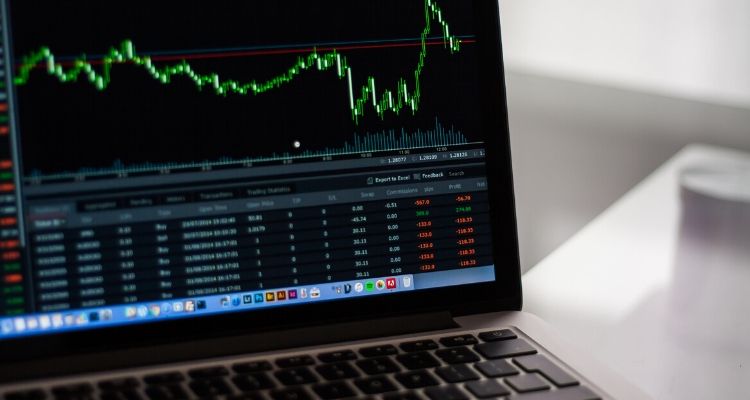As the impact of Covid-19 wreaks havoc on healthcare systems, governments, and economies around the world, it’s only natural for a sense of panic to be felt by all. For investment managers, this is particularly true for themselves and their clients. With markets taking a huge knock and a global recession becoming unavoidable, it’s more important than ever for financial advisors to prepare their clients for the future.
According to WeForum.Org, 2020’s first quarter saw the most brutal global equity collapse since the great depression. Unfortunately, it’s predicted that the second quarter of 2020 isn’t looking promising either. The coronavirus is still spreading rapidly and largely shattering the economy in its wake. So, how can investment managers prepare for further turbulent financial markets? In this article, we will unpack key strategies to see wealth managers and their clients through the global pandemic.

How Covid-19 has Effected the Stock Market:
While it’s uncertain where exactly the stock market will be in the near future, a steady decline seems to be on the table. Making provision for a short to medium term decline in the capital market is a prudent move. This can be done by contingency planning. Here are some of the ways in which this pandemic is hitting the global stock market.
The Labour Market
One of the most promising stock market booms in the last few years has come from the US labour market. However, due to unemployment levels reaching a half-century low, this area of growth and inflation may be over.
With a rising infection rate, and many businesses being forced to shut their doors, staff layoffs are expected to increase. The number of Americans filing unemployment benefit claims has reached a record of more than 3 million.
Economists have forecast the largest monthly decline in jobs since July 2009. This comes from payroll data which points to a loss of over 293,000 jobs. With statistics like these in mind, it’s clear to see the negative effect a decline in the workforce will have on productivity and therefore market capitalization.
Frontier Markets
While riskier assets in the market have experienced a very difficult time these past few weeks, one of the hardest-hit sectors are frontier markets. These markets are a subset of many emerging and smaller economies. Crashing oil and commodity prices are driving much of this decline – especially in African countries.
With weakening economies and the prospect of a global recession, countries with external debt repayments will be placed under rising expenses and increasing pressure. This has been visible in oil-producing countries, where the dollar-denominated debt has taken a steep plunge.
China’s Market
The huge impact that Covid-19 has made on China has left a large dent in its economy. Chinese factories hit their lowest profit figures in a decade at the beginning of the year, with even more low points projected for the future. Demand has severely dropped for Chinese products and therefore their worth.
On top of this, there is the issue of even more job losses. A decline in the Chinese economy will be sure to have an adverse effect on the international capital markets, based solely on the size of the Chinese market and its role as a global manufacturing stalwart.

Practical Steps to Responding to a Global Crisis
Although no financial advisor can anticipate the effect that a global pandemic can have on the economy, there are ways to mitigate investment risks. Following these steps won’t only see your financial business through rough times but it will also help cement client retention.
Portfolio Diversification
Keeping a diverse investment portfolio is always a good way of protecting your assets. Certain investments can outweigh the loss of others – this will alleviate the pressure clients and advisors may feel to meet their financial targets.
Flexibility is an important part of a successful investment portfolio. When the market is taking a dip, being able to adjust your investment strategy through a diverse portfolio can have many significant financial benefits. Balancing riskier investments with safer ones is key here.
Long and Short Term Investments
If clients are becoming wary of investing during a volatile market and the impact it will have on their long-term financial goals, it’s important to remind them of their overall investment plan. Although clients are often quick to look at the short term results, in a global crisis, staying focused on long term investments are key. This is why it’s important to set clear goals and timeframes in your clients’ portfolios.
However, with this being said, combatting client anxiety can be achieved by making use of successful short-term solutions. For those who are looking to diversify their portfolios, now is a better time as any to invest in otherwise expensive equities. Although the short term performance of these stocks may be sluggish, it’s the long-term results that financial advisors should look out for.
Understanding that your investment is there for the long run is important. Market history has shown that the stock market will eventually rise back up again. During a global recession, you will need to know which investments might need to be scaled back, and which ones to play the long game with.
Increase Client Interactions
During a global crisis, it is vital that wealth managers maintain consistent and open communication with their clients. When the markets are volatile, increasing client interactions is important. Higher net worth clients, in particular, will expect clear and constant communication with regards to their current financial position and their future outlook.
It’s advised that wealth managers obtain a complete understanding of their clients’ portfolios and be available for consultation wherever possible. Even though face-to-face meetings are no longer recommended, there are a number of digital platforms to assist with this. As a result, client expectations will always be met and stress levels will be reduced.

Final Thoughts
After a few years of economic growth, Covid-19 has been a wake-up call for wealth managers and investors alike. It’s more important than ever for financial advisors to accelerate their investment strategies with accurate and insightful information. Making use of SaaS such as MD Solutions’ Pivolt platform can ensure both short-term resilience and success in the post-crisis world.
